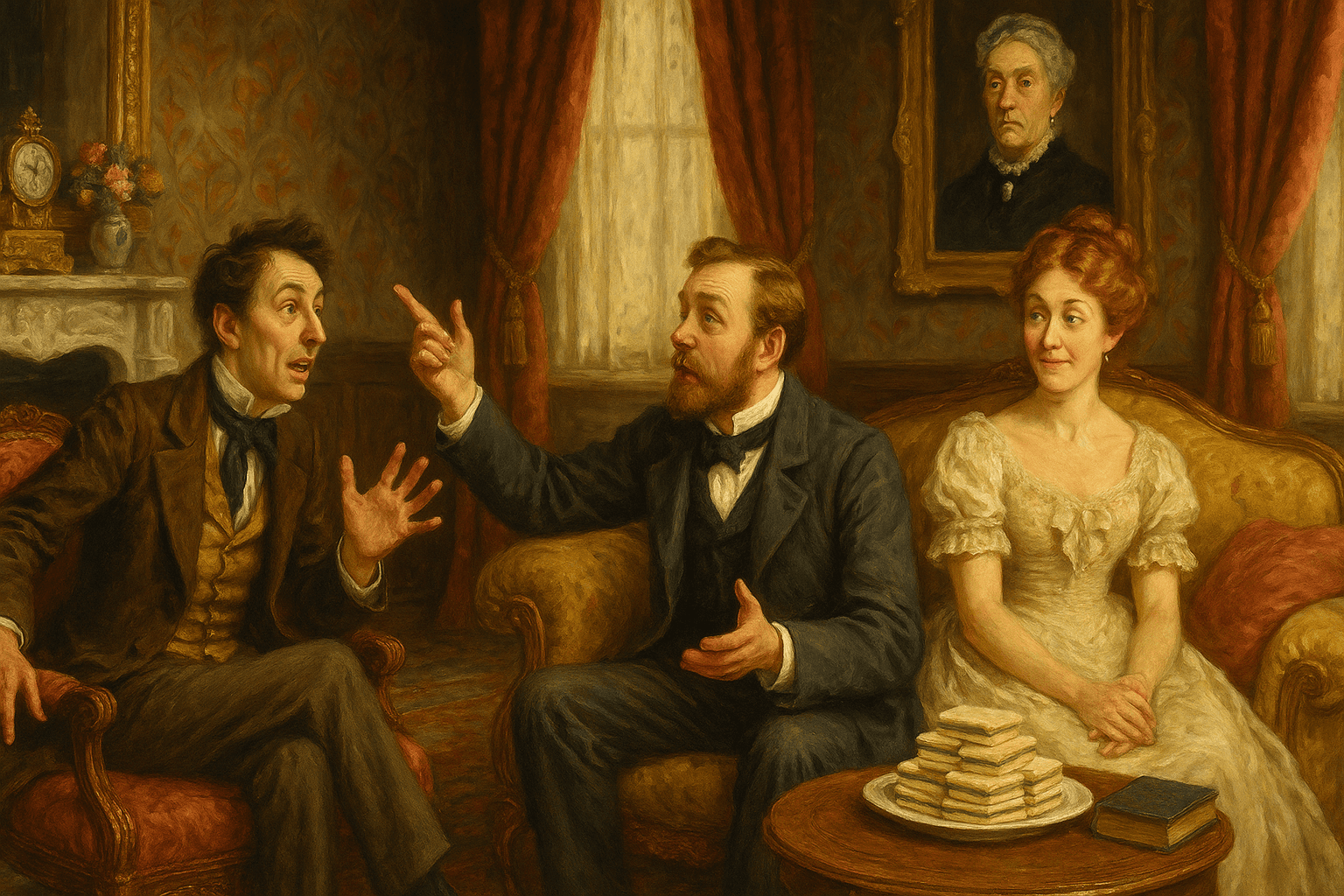The Weight of Social Expectations in 'The Importance of Being Earnest'

When you dive into Oscar Wilde's comedic masterpiece, "The Importance of Being Earnest," you're met with a world that seems delightfully absurd yet painfully familiar. At the heart of this trivial comedy lies a theme that resonates across time—social expectations. Wilde's sharp wit and humor shine a light on the often ludicrous pressures society places on individuals, particularly regarding identity and romantic relationships.
In the first act, we find ourselves in Algernon's plush flat, where conversations about cucumber sandwiches turn into a hilarious critique of upper-class life. Here, we meet Jack and Algernon, two characters who embody the tension between societal expectations and personal desires. Jack's double life as 'Ernest' is a clever ruse that highlights the lengths to which people will go to meet societal standards—essentially, to be someone they’re not. Lady Bracknell's interrogation of Jack sets the tone for the rigid social structures that dictate who is deemed worthy of love and marriage. Her fixation on family connections exemplifies how deeply ingrained these expectations can be, making us wonder: how much of ourselves do we sacrifice to fit in?
As we move into the second act, the humor intensifies when the characters gather at the Manor House. Here, Miss Prism urges Cecily to focus on her studies, reinforcing the notion that women must conform to specific educational standards. Yet, Cecily's yearning for romance leads her to concoct a fictitious engagement to Algernon, whom she mistakenly believes is her uncle's brother, Ernest. This twist illustrates the absurdity of social conventions surrounding identity and love. The arrival of Gwendolen, also engaged to 'Ernest', brings chaos, revealing how tangled our lives can become when we try to navigate societal expectations.
In the third act, the comedy reaches its peak as Gwendolen and Cecily confront Jack and Algernon about their deceptions. The pressure to conform to social norms around identity and marriage is palpable, and Lady Bracknell's authoritative presence looms large. Her strict scrutiny of Cecily’s background underscores how much value society places on status. Yet, when Jack finally reveals his true identity as Ernest, it fulfills Gwendolen's expectations, leaving us to question the authenticity of their relationships. Are these connections genuine, or merely products of social dictates?
As Wilde weaves comedic farce with critical commentary, he prompts us to reflect on our own lives. In a world where appearances often matter more than reality, how do we navigate the expectations placed upon us? Are we living authentically, or are we just playing our parts in a grand societal play? In the end, Wilde leaves us with laughter, yet a lingering thought: perhaps the most earnest thing we can be is simply ourselves, free from the weight of societal expectations.
Books: The Importance of Being Earnest: A Trivial Comedy for Serious People
Authors: Oscar Wilde
Publishers: Public Domain